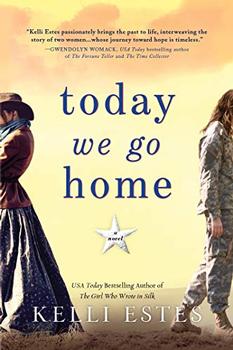Book Club Discussion Questions
Want to participate in our book club? Join BookBrowse and get free books to discuss!
Please be aware that this discussion guide will contain spoilers!
- A major theme of the story explores the female soldier's experience. Did any of these women's experiences surprise you? If you have military experience, what are some challenges, prejudices, abuses, etc. that you experienced as a female military member or witnessed by other women in the military?
- Emily enlisted so she could be with her brother as well as for the adventure. Willie enlisted as a means of financial support. Neither were sexually or romantically motivated, yet women discovered in Union or Confederate ranks were usually accused of such. Why do you think this was? Has this changed in society and/ or the military today?
- Emily lived in a state that declared it illegal for black people to live, work, or even visit. (Article 13 of Indiana's 1851 Constitution: "No negro or mulatto shall come into or settle in the State, after the adoption of this Constitution.") Do you think this helped or hindered her understanding of slavery and the growth of her abolitionist beliefs? Do you see any correlation
between this lack of exposure to people of a different race and how we still experience racism today?
- Opening all military jobs to women in recent years has started the debate on whether women should be included in any future drafts/conscriptions. What do you think?
- The epigraph at the beginning of the book reads "Home isn't where our house is, but wherever we are understood." Emily's home was in Indiana, yet it stopped being the place where people truly knew her. Larkin grew up in Seattle but chose to go home to her grandmother's house in Woodinville because that's where she'd feel best loved. What does home mean to you? Where is your "home"? Why?
- Through most of the story, Emily's family is made up of her brother and Willie. For Larkin, it is her grandmother and cousins. Both women have other family members, but they feel emotionally disconnected from them. Who do you consider your true family, no matter if they are actual family? What is it about these people that you love so much?
- There are people still today who don't believe the Civil War was about slavery. What do you think, and why?
- Were you surprised to learn that so many women disguised themselves as men to fight in the Civil War? Had you heard about any before reading this book? Did you look up any online while reading? Share what you know or learned with the group.
- Was it a surprise to you to learn that black men were not allowed to join the Union army until 1863? That they were segregated from white soldiers and led exclusively by white officers? That they were not paid the same wages as white soldiers until June 1864? That, if caught by Confederate forces, they were usually brutally killed and never taken prisoner? Do you think the war might have ended sooner if any of these facts were different?
- PTSD, while certainly discussed in relation to veterans, can also arise in people who have never served in the military. Even children can suffer from PTSD. Some known causes are sexual, physical, or emotional abuse; a natural disaster; a car accident; a long- term illness; etc. Do you have personal experience with PTSD (yourself or a loved one) that you can share with the group?
- Did the information in the story about the bacha posh of Afghanistan surprise you? Are there any similar practices in your culture where a female takes on the appearance and social expectations of a male? Why is the practice accepted in some cultures and not in others? Is it different if the decision is that of the child rather than the parents?
- Emily's diary directly influenced Sarah's decision to join the military. Imagine one of your ancestors left a diary detailing his or her experiences during an interesting time in history. What would you do with that information? Share with the group what you already know about your ancestor and the time he or she lived. How might learning more about this ancestor's experiences through a diary affect you?
- After Emily's story ends, her granddaughter makes an entry in her diary that gives some clues to what happened to Emily and the children. What do you think their lives were like living on the prairie? What, especially, do you think life was like for Gabriel as a cattle rancher when there were likely very few others who looked like him?
- Do you now think differently about women serving in the military? What are some actions you can take to support female veterans and show your appreciation for their service?
Unless otherwise stated, this discussion guide is reprinted with the permission of Sourcebooks. Any page references refer to a USA edition of the book, usually the trade paperback version, and may vary in other editions.
